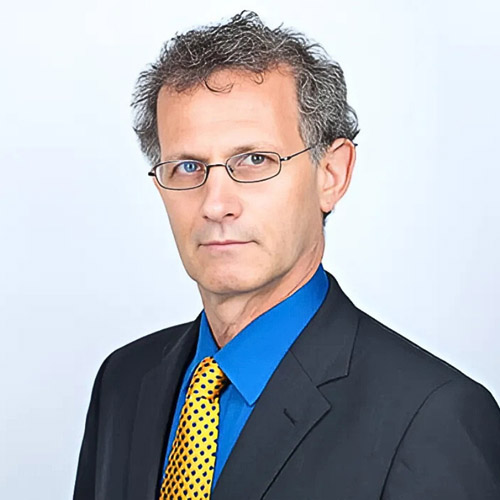Minimizing Bias in Forensic Decision Making
Presented by: Itiel Dror, PhD

This on-demand professional training program on Minimizing Bias in Forensic Decision Making is presented by Itiel E. Dror, PhD, in partnership with Cognitive Consultants International. This badge-earning program can be shared digitally on platforms like LinkedIn or your resume and counts towards various certificates. Enroll to earn credit and share your new digital credentials with prospective employers and colleagues. This program counts as a foundational program in the certificates:
The program covers the brain and cognitive issues relating to bias and cognitive processing and then connects the cognitive science issues to practical and specific topics in forensic decision-making. In addition to knowledge about the cognitive factors in forensic decision-making, the program also provides practical solutions to address weaknesses and best practices to enhance forensic practices.
Specific application to forensic mental health evaluation is provided through engaging discussions between Dr. Dror and Dr. Patricia Zapf, a forensic psychologist, and expert in best practices in forensic mental health evaluation. In addition, Dr. Zapf provides elaboration on how the factors discussed by Dr. Dror apply to a forensic mental health evaluation.
Conducting forensic examinations is similar to other expert domains that require perception and interpretation of information, such as in the military, medical, and financial disciplines. Even in everyday life, humans constantly process information. Information is perceived, encoded, represented, transformed, stored, retrieved, compared to other details, evaluated, and assessed, to name just a few cognitive processes. The human mind is not a camera, as we actively process and compare information. It is naive to think we passively construct and experience reality and perceive the environment as 'it is.'
We engage in various cognitive processes that organize and structure the information as it comes in from the external world. Data is then further interpreted and processed in ways that highly depend on the human mind and cognitive factors. As we dynamically process information, we affect what we see, interpret, and evaluate it, and our decision-making process. Thus, to enhance expert performance and understand that different factors may affect their work, especially in a highly specialized domain such as forensics, one needs to consider the role of the human mind and cognitive factors (Dror, 2015).
While some education is provided to forensic experts, there is a lack of training in the psychological and cognitive elements involved in forensic decision-making. Thus, there is a lack of systematic training and professional development in the influence of human cognition on forensic work. This program is a step towards addressing training in the cognitive factors involved in forensic decision-making.
Upon completion of this training, participants will be able to:
Key topics covered in this training include:
Background Knowledge
The human brain and how that translates to human performance and how we process information
How information processing underlies all aspects of perception and cognition in general and in expertise
Specific issues in information processing, such as:
Knowledge representation
Allocation of resources
Perception
Judgment
Decision making
Architectural constraints in cognition, including:
Limits in information processing load
Malfunctions
Lack of control
Domain Applications
Domain Implications
Domain Implications ties both Background Knowledge and Domain Applications to specific issues regarding how forensic decision-making is conducted


Cognitive Consultants International (CCI-HQ) specializes in taking a cognitive neuro-scientific approach to applied real-world consultancy and research. In a nutshell, that means that we apply our knowledge and understanding of the human brain and cognitive system to resolve practical problems and human factors issues in the real world.
We are proud to partner with Cognitive Consultants International for live and on-demand event training programs.
Palo Alto University, Continuing & Professional Studies (CONCEPT) is approved by, recognized by, or maintains sponsorship provider status with the following boards and agencies. We maintain responsibility for all content in our CE/CPD programs. For more information, visit here.
American Psychological Association (APA): Approved sponsor of continuing education for psychologists.
Association of Social Work Boards (ASWB): Approved continuing education provider (ACE program, Provider #1480), 11/22/2023–11/22/2026.
Canadian Psychological Association (CPA): Approved to sponsor continuing education for psychologists.
National Board for Certified Counselors (NBCC): Approved Continuing Education Provider (ACEP No. 7190).
Palo Alto University, Continuing and Professional Studies (CONCEPT) is approved by the American Psychological Association to sponsor continuing education for psychologists. Palo Alto University, Continuing and Professional Studies (CONCEPT) maintains responsibility for this program and its content. Palo Alto University, Continuing and Professional Studies (CONCEPT), is approved by the Canadian Psychological Association to offer continuing education for psychologists. Palo Alto University, Continuing and Professional Studies (CONCEPT), SW CPE is recognized by the New York State Education Department’s State Board for Social Work as an approved provider of continuing education for licensed social workers #SW-0356 and the New York State Education Department’s State Board for Mental Health Practitioners as an approved provider of continuing education for licensed mental health counselors. #MHC-0073. Palo Alto University, Continuing and Professional Studies (CONCEPT) has been approved by NBCC as an Approved Continuing Education Provider, ACEP No. 6811. Programs that do not qualify for NBCC credit are clearly identified. CONCEPT Professional Training, #1480, is approved to offer social work continuing education by the Association of Social Work Boards (ASWB) Approved Continuing Education (ACE) program. Organizations, not individual courses, are approved as ACE providers. State and provincial regulatory boards have the final authority to determine whether an individual course may be accepted for continuing education credit. CONCEPT Professional Training maintains responsibility for this course. ACE provider approval period: 11/22/23-11/22/26. Social workers completing this course receive (clinical or social work ethics) continuing education credits.